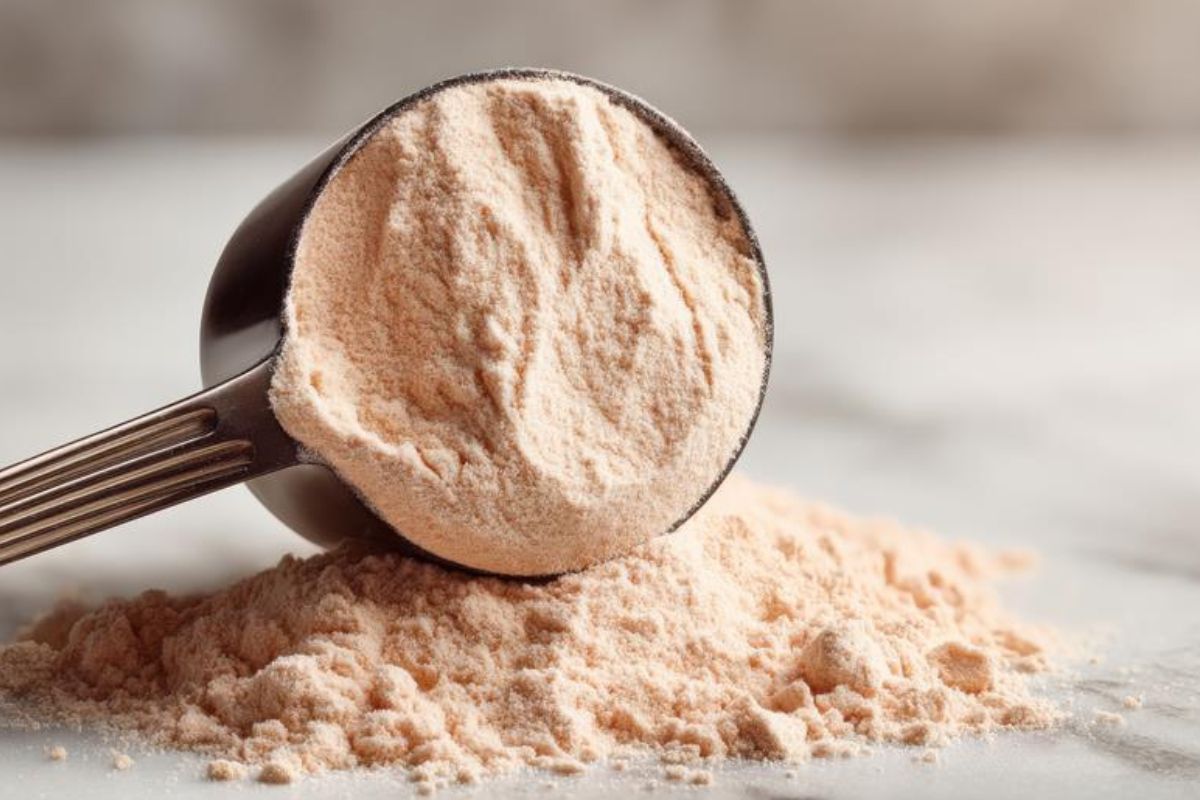In recent years, the term "high protein" has become a real trend. More and more people are paying more attention to their protein intake, and protein is also receiving more attention in the nutrition world than ever before. But what exactly does "high protein" mean? And how much protein do we really need to optimally nourish our bodies?
What does “high protein” mean?
"High protein" translates to "a lot of protein." Products or meals bearing this term contain significantly more protein than conventional versions. According to the European Union definition, a food may be advertised as a "high protein product" if at least 20% of its energy content comes from protein.
What is the difference between “high protein” and “normal” protein?
The main difference is simply the quantity:
- Normal foods contain between about 3 and 20% protein.
- High-protein products provide a significantly increased amount of protein – ideal for people with specific nutritional goals such as muscle building, weight loss, or a conscious high-protein diet.
Plant protein sources: High protein in a vegan diet?
When it comes to protein, many people first think of animal sources like meat, fish, or dairy products – but the plant world also has a lot to offer! Particularly interesting for a vegan or plant-based diet are, for example:
- Legumes such as lentils, chickpeas or black beans
- Soy products such as tofu, tempeh or textured soy protein
- Seitan and hemp seeds
How much protein do we actually need?
The German Nutrition Society (DGE) recommends that adults consume an average of 0.8 grams of protein per kilogram of body weight per day .
However, for physically active individuals, older people, or those with specific goals (e.g., muscle building), the requirement can be significantly higher—often between 1.2 and 2 grams per kilogram of body weight per day . In these cases, it's worth paying particular attention to protein intake.
Maximum protein intake
There is also a sensible upper limit for protein intake. Studies, for example in the Journal of the International Society of Sports Nutrition , show that a daily protein intake of more than around 2 grams per kilogram of body weight generally does not provide any additional benefit for building muscle. This means that eating more protein does not automatically lead to more muscle mass. The body only uses a certain amount of protein for building muscle and other important functions. If more protein is consumed, the body can still use it - for example, to generate energy. In this case, the excess amino acids are converted into glucose in the liver via a process called gluconeogenesis. This happens especially when energy requirements are high or carbohydrate intake is low.
Individual differences count
Every person is different – and this also applies to protein requirements. How much protein your body needs depends on many factors: age, gender, body type, health status, and how active you are. So there's no one-size-fits-all formula.
Not only quantity but also quality counts
It's not just how much protein you eat that matters, but also the type. High-quality protein sources provide all the essential amino acids your body needs to function optimally. In addition to animal products, there are also many plant-based foods that contain valuable protein. Even if some plant-based protein sources don't contain all the essential amino acids in the ideal amounts, this can easily be compensated for by choosing a diverse diet. Especially with a vegan diet, it's a good idea to combine different protein sources to complement the amino acid profile. This way, the amino acid pattern is complemented, and your body gets everything it needs. Vegan foods with a complete amino acid profile Examples include soy, quinoa and hemp seeds.
In short
How much protein you should consume daily depends on your personal goals, your activity level, and your body type. While general recommendations provide a good guideline, what ultimately matters is what works for you and your lifestyle. Make sure you eat a balanced diet with sufficient high-quality protein sources—this is the foundation for health, performance, and well-being.
Protein powder and bars as a practical addition
In addition to natural foods, vegan protein powders and bars can also help you meet your daily protein needs more quickly. They provide concentrated plant-based protein in a convenient form, for example, after a workout, on the go, or as a protein-rich snack between meals. With our vegan protein powders and protein bars , made from high-quality plant-based proteins, you can supplement your diet in a targeted way – delicious, purely plant-based, and perfectly tailored to your goals.


